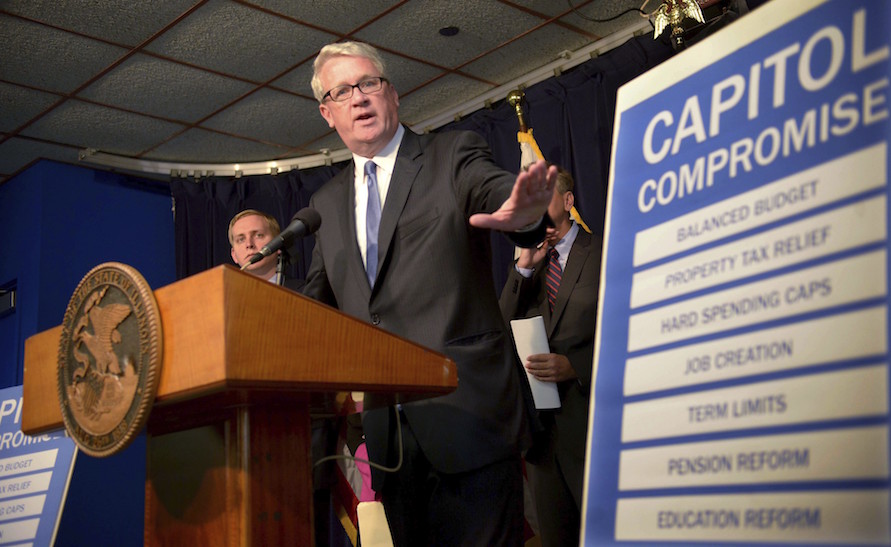Illinois' Republican Gov. Bruce Rauner vetoed tax increase and state spending bills on this Independence Day that Illinois House Speaker Michael Madigan and other Democrats said were crucial to ending the three-year-long budget stalemate in Springfield. As a result, the Illinois Dept. of Transportation suspended all construction projects as of July 1.
"This shutdown impacts highway, rail, transit and aeronautics projects that involve contracts that have been let and awarded by the state, as well as any engineering and consultant contracts," noted a statement on the Illinois DOT web site. The shutdown stops a planned $2.2 billion in highway and bridge construction spending on 900 active projects and is predicted to significantly impact construction and engineering companies and the state's economy as a whole. An American Road and Transportation Builders Association economic analysis forecasts a shutdown of the state's transportation improvement projects will cost the construction industry and the state's taxpayers at least $34 million in the first week alone.
The Illinois Senate quickly voted to override Rauner's veto and now the bill awaits an override vote in the State House. The bill squeaked through the Senate vote, where one Republican joined 35 Democrats to provide the 36 votes required to pass the income tax increase and to override Rauner's veto hours later.
Under the tax portion of the bill, Illinoisans' personal income tax rate would increase from 3.75% to 4.95%, which would generate roughly $4.3 billion. The corporate income tax rate rises from 5.25% to 7% and would bring in an additional $460 million provided that few businesses fled the state due to the tax hike.
The spending bill foresees the state spending a little more than $36 billion, about $4 billion more than it currently takes in from taxes. The plan includes across-the-board cuts of 5% to most government agencies, and a 10% cut for higher education. Rauner said the bill does not reform workers' compensation, lawsuit liability or freeze property taxes, requirements that he has said are among a list of moves necessary to fix the state economy's structural problems.
Still, if Madigan can get 71 state representatives to override Rauner's veto, it will become law. Many state representatives went home for the Independence Day holiday and the Speaker's office has said no vote will happen until at least Thursday. The tax increase bill passed the State house this weekend by 72-45 vote with 15 Republicans joining the Democrats. Lawmakers later voted 81-34 to approve the spending plan. The support of the 15 Republicans who voted to initially pass the bill is not assured at this point.





_ENRready.jpg?height=200&t=1721243084&width=200)